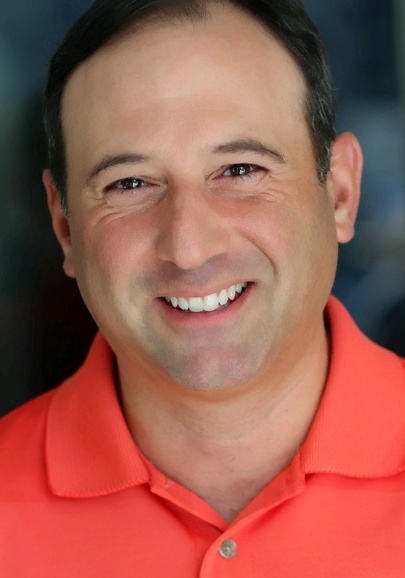|
ARTIFICIAL INTELLIGENCE / TTS Don't Commit 'Career Suicide' In AI: How To Keep Control Of Your Cloned Voice January 11, 2022  By Robert J. Sciglimpaglia By Robert J. SciglimpagliaAttorney, Voice Actor, Actor, Producer, Author I have had the privilege of being involved with the evolution of text-to-speech (TTS) technology - also known as artificial intelligence (AI). This
technology produces what is known in the business as a computer-generated synthetic
or cloned voice.
Back in 2016 I was fortunate enough to have been hired by CKP Media
in New York City to negotiate the contract and direct the sessions for
the BIXBY voice, which is used on the Samsung phones and appliances. That was in the early developmental days of voice over, when text-to-speech consisted of computers piecing sounds and sentences
together. At that time, companies were hiring voice talent to be the "voice" of their
brand. For instance, in my case, Samsung had done an extensive
worldwide search through auditions, much like a commercial audition, and
the final voice was chosen after "test marketing" through focus groups. That empowered talent to be able to demand a very nice wage
for their services. Also during that period of time, the big tech companies Amazon, Google,
Apple and Microsoft were developing text-to-speech voice banks. At the
beginning, these companies hired people off the street to come
into a studio for a $50 gift card to say a bunch of random phrases, and
that is how they captured the voices for the early text to speech
"voices." BUT 'GARBAGE IN, GARBAGE OUT' Those companies quickly realized however, the concept of
"garbage in, garbage out," since the untrained off-the-street voices were not of good enough quality to allow the computers to
produce quality synthetic voices. So the companies started
contracting out to third-party companies to hire professional voice
talent to record several thousand lines of copy at $2,000 to $5,000 per job. The voice talent would sign over their rights to ownership of the sound
files, and agree that the files could be sold and transferred to third
parties to use for any purpose, for as long as they company wanted ("in
perpetuity"), without any recourse by talent. The sole purpose of the third-party
companies is to either set up banks of artificial, cloned voices, or
to sell the files to companies that use artificial cloned voices. So basically what talent were agreeing to was to create a clone of
their voice, to be used anywhere for any purpose. This is what I label
as "career suicide" because the voice talent will actually be competing
against themselves. KEEPING CONTROL OF USAGE Now there is a newer, better wave of companies that have pledged to
use artificial intelligence ethically and in conjunction with the voice
over profession. These companies create a clone of the talent's
voice that will belong to the talent. The talent will be able to
market their clone voice for any purpose, including commercially, and
will receive a future residual for any sales generated by use of their cloned voice. SOON, WON'T TELL THE DIFFERENCE I often hear the argument that AI is not an issue and that it will not
replace human voices because "it sounds like a robot" - lacking the emotion and inflection of the human voice. The problem with this argument is that the AI technology is
advancing so quickly that the ability to tell "live" from "clone" is
becoming very difficult. Very soon, one won't be able to tell the
difference. In addition, technology now exists where recording of
separate lines of text is no longer necessary to create a clone. Existing recordings that are long enough can be used to create
the voice. For instance, Val Kilmer, who is suffering from throat cancer
and cannot speak, was able to have his voice cloned using voices from his films - and
now his cloned voice speaks for him. This technology also allows film
companies to do ADR (automated dialogue replacement) without having to
call the actors back in, by using the existing dialogue track from the
film. STUDY THE CONTRACT SPECS All of this means that talent need to be able to recognize the language
in auditions and contracts to be able to tell the "good" AI jobs vs. the
"bad" potentially career-injuring ones. Contracts to avoid are the ones that ask for full
ownership of the voice files, to be used:
By contrast, look for contracts that allow you to own your cloned voice. They:
These contracts can bolster a
talent's career by creating a "clone" partner. One that will
potentially live on and continue to earn income for future generations
to come. Not a bad legacy, I would say. NOTE: The author recently represented voice actor Bev Standing in a successful lawsuit that charged social media giant TikTok with unauthorized use of Standing's recorded voice. Details here. ------------------------- ABOUT ROBERT Practicing
law since 1991, Robert J. Sciglimpaglia Jr. is an attorney admitted to
the bars of Connecticut and New York, specializing in several fields
including entertainment law where he represents actors, voice over
artists, musical acts and bands on issues including representation
agreements, contracts and copyrights. He is also a professional voice
actor, actor in on-camera commercials and TV programs and film, film producer voice over coach and radio program host. He is also author of Voice Over LEGAL, the essential guide to managing voice over business and legal issues - and number one on the Amazon Best Seller list for Entertainment Law books, published by VoiceOverXtra. Email: robscig@usa.net Web: www.robpaglia.com Voice Over Legal: www.VoiceOverLegal.com |
As of the NEW website launch, 03/22/2012










Is there a reporting tool, possibly with NAVA, that we can submit sites like this?